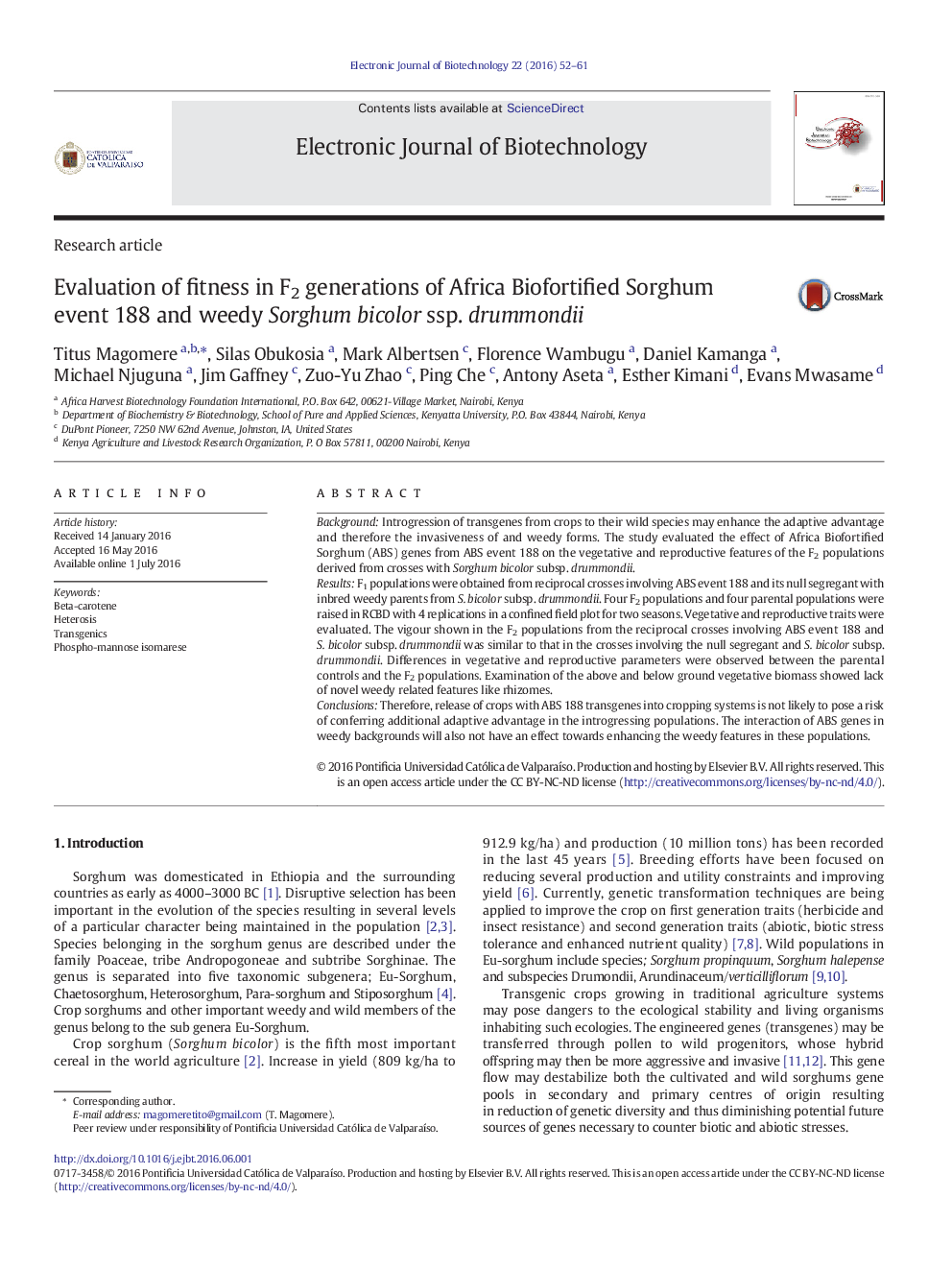| Article ID | Journal | Published Year | Pages | File Type |
|---|---|---|---|---|
| 200708 | Electronic Journal of Biotechnology | 2016 | 10 Pages |
BackgroundIntrogression of transgenes from crops to their wild species may enhance the adaptive advantage and therefore the invasiveness of and weedy forms. The study evaluated the effect of Africa Biofortified Sorghum (ABS) genes from ABS event 188 on the vegetative and reproductive features of the F2 populations derived from crosses with Sorghum bicolor subsp. drummondii.ResultsF1 populations were obtained from reciprocal crosses involving ABS event 188 and its null segregant with inbred weedy parents from S. bicolor subsp. drummondii. Four F2 populations and four parental populations were raised in RCBD with 4 replications in a confined field plot for two seasons. Vegetative and reproductive traits were evaluated. The vigour shown in the F2 populations from the reciprocal crosses involving ABS event 188 and S. bicolor subsp. drummondii was similar to that in the crosses involving the null segregant and S. bicolor subsp. drummondii. Differences in vegetative and reproductive parameters were observed between the parental controls and the F2 populations. Examination of the above and below ground vegetative biomass showed lack of novel weedy related features like rhizomes.ConclusionsTherefore, release of crops with ABS 188 transgenes into cropping systems is not likely to pose a risk of conferring additional adaptive advantage in the introgressing populations. The interaction of ABS genes in weedy backgrounds will also not have an effect towards enhancing the weedy features in these populations.
